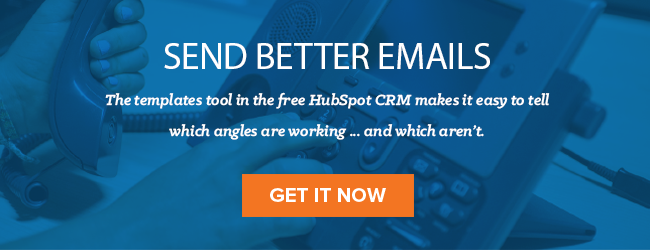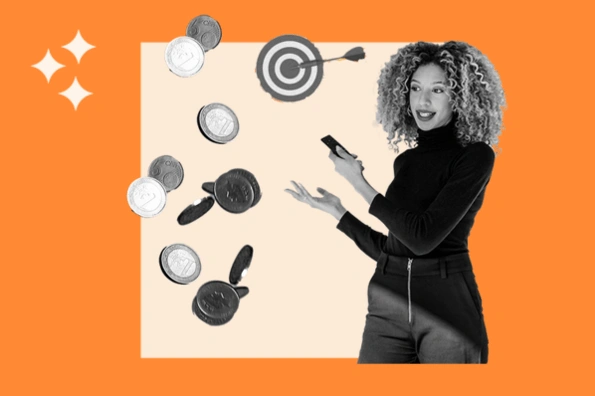

Whether in the courtroom or the boardroom, trial lawyers and salespeople share a desire to influence the outcome of a decision. The ability to present a persuasive case is key to your success in sales --especially as modern buyers often juggle multiple priorities and grow increasingly reluctant to change the status quo.
The following four techniques of persuasion have been road-tested in the courtroom and will give you the winning edge you need in sales.
1) Start off strong
Research suggests most jurors arrive at their verdict during or immediately after opening statements. They spend the rest of the trial selectively looking for evidence that justifies that initial decision.
Unsurprisingly, trial lawyers spend a great deal of time and energy preparing and practicing an opening statement that will grab the jury’s attention, spark interest, and lay the foundation for their full argument.
A salesperson is also making a case -- but for your product or service. Your prospect will start weighing the evidence from the moment you begin. That means you can’t afford a slow start.
Practice a strong beginning to your sales pitch. As with a good opening statement, you shouldn’t lay out your entire proposal -- that will overwhelm the buyer and make you seem overly eager. Instead, give them a preview of what they can expect. For example:
“Today we’re going to show you how a single solution can eliminate the delays and errors you’re currently experiencing in your pipeline by helping you quickly get the key information you need.”
2) Understand your audience
To win over a jury, a trial lawyer must understand what makes each juror tick long before she gets to trial. Law firms spend a lot of money researching jurors’ backgrounds, experience, and beliefs. During the selection process, lawyers start to develop connections with jurors and further hone their understanding of each individual. By the time the lawyer arrives at trial, she is well-prepared to present a strong case tailored to her specific jury.
Similarly, if you’re not armed with a good understanding of your buyer’s unique experience, perspective, and needs before your presentation or meeting, you are at a distinct disadvantage. Schedule pre-meeting discovery calls with key decision makers or influencers to get the information you need for a credible proposal. Avoid “selling” during these discovery sessions. Use this time to gain valuable insights and forge a stronger connection with your buyer.
Information like the following is vital to your understanding:
- How your customer thinks about this problem
- How they’re currently dealing with it
- The impact of this problem on their organization
- Their goals or objectives
- Other vendors under consideration
- Dates by which they need a solution in place
3) Be consistent
From the moment she steps into the courtroom, a trial lawyer knows she is on stage. Whether she’s questioning a witness, talking to a judge, or consulting with her client, the jury will be taking in the lawyer’s every word, movement, and facial expression. Any inconsistences in behavior raise dangerous doubts and erode her credibility.
When you’re in front of a customer, you’re under scrutiny as well. The prospect’s impression of you is influenced by everything from the way you handle questions and objections to something as simple as your response to a technology challenge. Like a good trial lawyer, you need to give a good performance. Be on time, treat everyone you meet with courtesy and respect, and stay level if problems come up. Your professionalism won’t go unnoticed.
4) Appeal to emotions in your close
Because verdicts are reached behind locked doors -- outside of the attorney’s influence -- closing statements must be strong and memorable. Trial lawyers can’t finish with a dry summation of the facts. Emotions play a large role in decision making, so attorneys often appeal to jurors’ emotions in their closing statement.
Buying decisions are also often made after the salesperson is gone. However, most sales calls and presentations close with a weak “any questions?” or a boring recap of the facts. If you want to influence your buyer’s decision and make purchasing your product a priority, your close must include an emotional component.
Restate what’s at stake for your buyer, and highlight the difference between his current painful state and the future state where his problem is solved or his goal has been met. For example:
“Unlike your current platform, which you’ve struggled to get your team to adopt, your salespeople will love how intuitive our solution is. They’ll also get up to speed quickly, which will save you days of additional training every quarter.”
To convince the modern prospect to buy your product, you can’t simply show up with information. Present your proposal in its best possible light with these four proven principles of persuasion.





![How to Win a Deal on Shark Tank: The Anatomy of a Perfect Business Pitch [Infographic]](https://53.fs1.hubspotusercontent-na1.net/hubfs/53/________SHARK%20%281%29.jpg)

![6 Essential Elements of a Successful Sales Pitch or Presentation [Infographic]](https://53.fs1.hubspotusercontent-na1.net/hubfs/53/sales-pitch.jpg)


